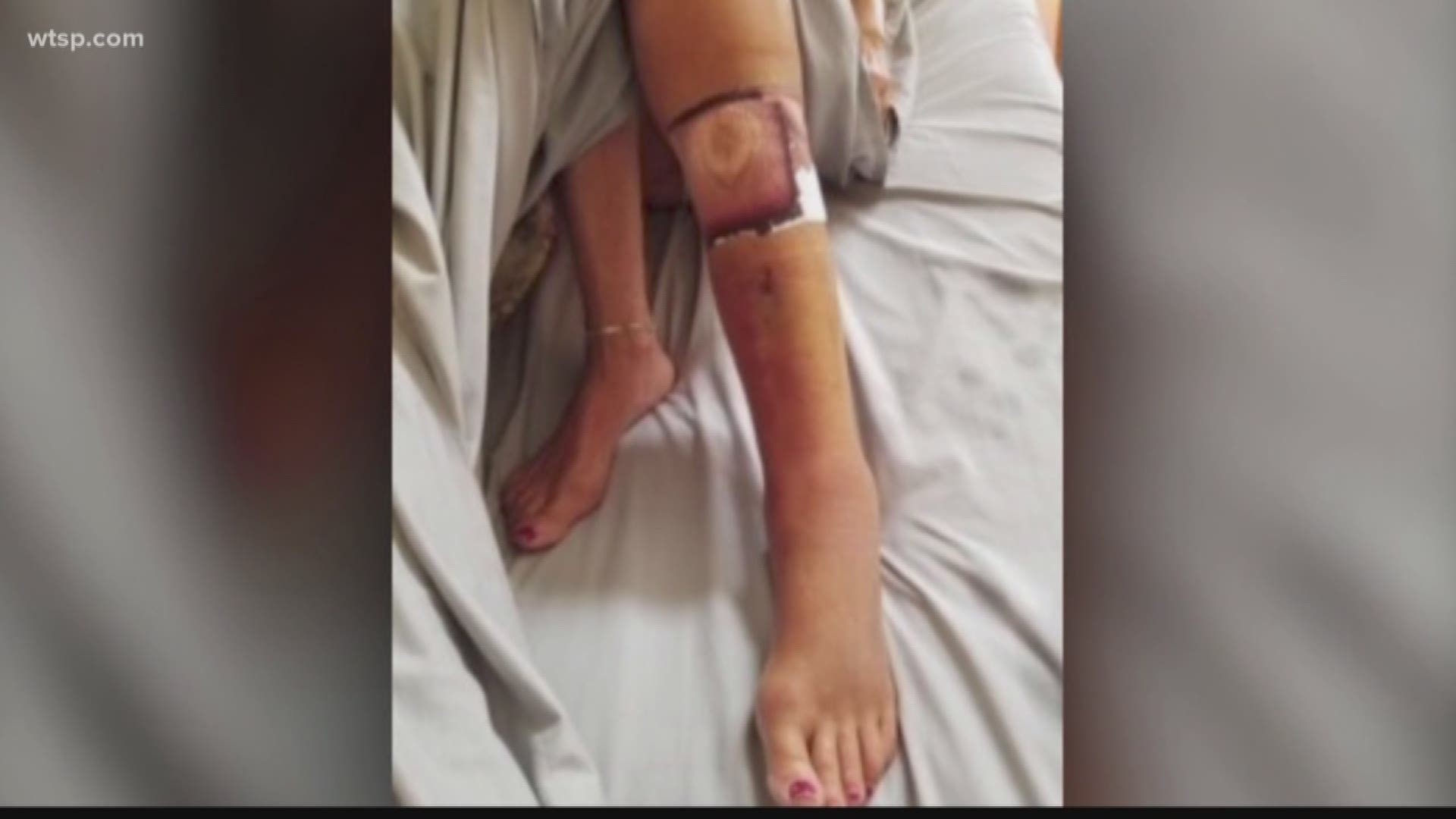The Florida Department of Health said the state's beaches are "safe for visitors, but use caution."
The statement from the department in Bay County comes after several reports of people contracting flesh-eating bacteria from the beach. The health department said to avoid getting in the water if you have any breaks in your skin, cuts or open sores.
In June, doctors reported a 12-year-old Indiana girl had contracted necrotizing fasciitis after scraping her big toe while visiting Pompano Beach. She had to get surgery on a pocket of infection in her leg after the pain became so great, she couldn't walk.
Weeks later, a 77-year-old Ellenton woman died after complications from surgery following contracting the bacteria. The woman's family said she scraped her leg while walking on the beach.
Around the same time, a man who said he never touched water was diagnosed with vibrio, a bacteria found in warm, brackish water. The man was working at his water sports business in Santa Rosa Beach but said he did not directly touch water that day.
One Florida woman was diagnosed with group A Streptococcus, the most common cause of necrotizing fasciitis, after an injury on Manasota Beach. The pinhole-sized cut on her foot prevented her from walking by July 4.
Just last week, a woman said she narrowly avoided contracting flesh-eating bacteria from a beach in Sarasota. She said she cut herself shaving a few days before the beach trip and went to the hospital when she felt her leg stinging in the water.
Doctors said the infection was cellulitis, which if left untreated can cause fasciitis.
In a statement to CBS affiliate WKMG last week, the Department of Health in Orange County provided advice for beach-goers:
When visiting the state's beaches and/or intracoastal waterways, residents and visitors should cover any open skin cuts they may have with a waterproof band-aid before interacting with the water. If not possible, individuals can enjoy the sun and sand but they may want to stay out of the water as a precaution against water-borne illnesses.
The department in Bay County also provided a fact sheet for necrotizing fasciitis, saying it's caused by more than one type of bacteria.
More about flesh-eating bacteria
- Several bacteria common in Florida's environment can cause the condition necrotizing fasciitis, or flesh-eating bacteria.
- People don't "catch" flesh-eating bacteria. It's a complication or a symptom of a bacterial infection.
- Vibrio vulnificus is sometimes called flesh-eating bacteria. This bacteria naturally occurs in warm, salty waters like the Gulf of Mexico and nearby bays.
- Necrotizing fasciitis and severe infections from vibrio vulnificus are rare. The infections can be treated with antibiotics and sometimes require surgery. The health department said a rapid diagnosis is the key for treatment and recovery.
- The health department said the chances of developing necrotizing fasciitis is extremely low for those with healthy immune systems.
- Video shows final moments of doomed flight from Addison's airport
- 2 people killed, dozens injured after carnival ride suddenly snaps in half
- Man kidnapped, killed woman found in truck in Dollar Tree parking lot: deputies
- 'New' type of skimmer found inside gas pump in Clearwater
- Florida 'Doomsday prepper' accused of abusing adopted twins
►Make it easy to keep up-to-date with more stories like this. Download the 10News app now.
Have a news tip? Email desk@wtsp.com, or visit our Facebook page or Twitter feed.

